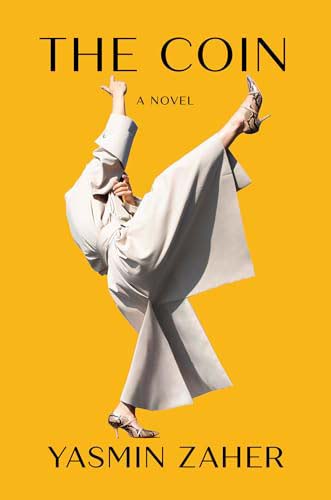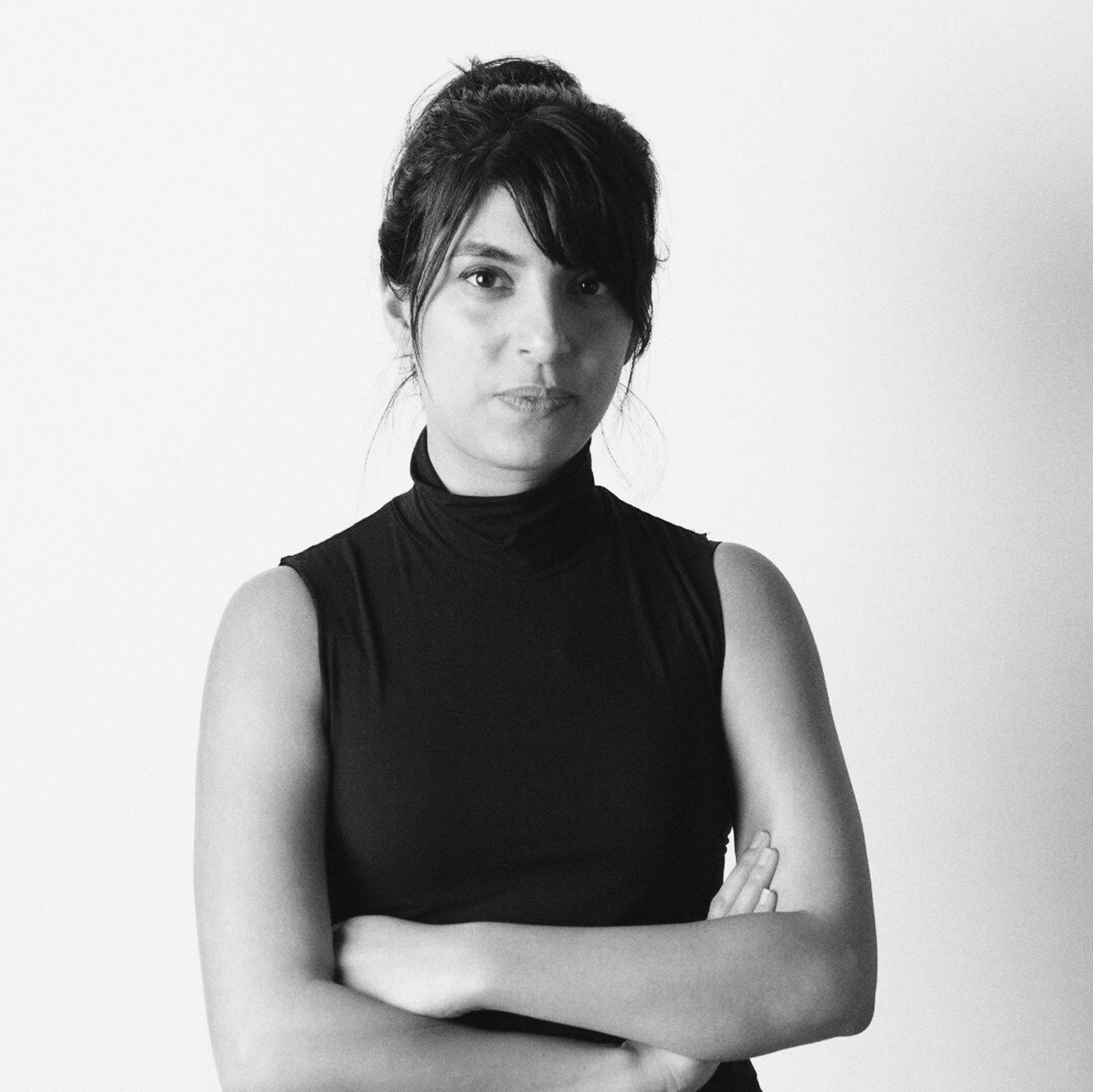- Culture
- 07 Jul 25
Yasmin Zaher: “When you come from a situation where your life is already unstable and risky, you’re going to search for a profession that can give you more stability"

Yasmin Zaher discusses her Dylan Thomas Prize-winning debut novel The Coin, which focuses on a Palestinian woman living in New York, who becomes entangled in the city’s luxury goods black market.
People like Yasmin Zaher aren’t supposed to write novels. The author herself says so, not out of false modesty, but rather lack of precedent.
“It wasn’t really a path that I thought was possible,” she says. “I grew up in Jerusalem, which feels like the periphery of the world. I’m a woman and Palestinian – so even worse than a second-class citizen.
“There are authors I discovered later in life, but there was never anybody I knew personally. I didn’t even know any musicians or artists. Everybody around me was an engineer, doctor or accountant.
“To pursue art is a precarious life path. When you come from a situation where your life is already unstable and risky, you’re going to search for a profession that can give you more stability.”
Zaher followed suit, leaving home at 17 to go study at Yale, where she obtained a degree in biochemistry. Feeling listless, she made a “u-turn” towards writing in her mid-twenties.
“I thought that maybe if I pursued what I think I am meant to pursue, then I would have felt like less of an outsider in this world,” she says.
That decision led to her debut novel, The Coin, which won this year’s Dylan Thomas Prize, a prestigious award handed out by Swansea University to writers under the age of 39.
 The Coin.
The Coin.Accurately described by the pundits on its praise page as a “caustic wonder” full of “sordid hijinks”, the story follows a wealthy, unnamed Palestinian woman navigating life in New York City.
A teacher at a boys’ school, she later becomes entangled in the luxury goods black market, all while grappling with identity and control. Like all good novels, it mines the author’s life for material.
“Landing in New York was shocking, in a bad way,” Zaher shares. “There’s a lot of suffering in that city. I grew up in a city with a lot of suffering too, but it’s not at all on the same plane. For example, in
Jerusalem, there’s a lot of political suffering, but I think people have more social security.
“Whereas in the United States, a lot of people don’t have social security. So it was shocking to me in that sense. But it’s an undeniably energetic city, so I was very inspired by that.”
Was Zaher’s relationship with America complicated by its role in helping Israel subjugate Palestinians?
“It’s very hard to reconcile that,” she says. “It’s not like I ever was in a country where I was super happy about how they treated Palestinians, but yeah, America is one that you grow up with a lot of resentment towards.”
New York being a beacon of capitalism, consumer culture runs through The Coin. The protagonist is fashion-obsessed, always referring to clothes and everyday objects by their brand names.
“People are attached to their toothpaste brands,” Zaher laughs. “But writing this book really turned me off all of these things. I find them so off-putting now. I try to resist it as much as I can, but I’m not very good at it. I have these days where I try to spend zero money and it’s very hard.
“When you’re young, you’re experimenting with reinvention,” she continues. “The character in my book is really trying to reinvent herself, and she’s failing, by looking at a lot of consumer products.
The main character in The Coin puts a similarly intense focus on cleanliness. As well as ironing her bedsheets and scrutinising the city’s filth, she has a self-designed ritual dubbed the “CVS Retreat”, an hours-long process of thoroughly scrubbing and shaving her entire body using various items she purchases at the American pharmacy.
“I grew up in a home and in a culture where the women were super obsessed with cleanliness,” Zaher says. “ It was a marker of being a good woman, and it’s connected to traditional female roles of cooking, cleaning and taking care of children. That’s what makes a woman a good woman, a worthy woman. In a way I was dealing with my own inheritance of that.”
The Coin breaks a lot of taboos from Zaher’s Palestinian Christian background, which the writer describes as traditional by western standards, but progressive in a local context.
There’s a lot of sex, for one, with the protagonist taking a cold and manipulative approach towards making love, if you could even call it that.
“There’s a French writer called Catherine Millet, who has a book called The Sexual Life Of Catherine M,” Zaher shares. “I read that when I was 15 and it blew my mind. I didn’t realise people could talk about sex like that. The blessing of The Coin is that I didn’t think anybody would read it. So I wrote it not thinking that anybody would.
 Yasmin Zaher.
Yasmin Zaher.“I took even more risks that I had to walk back from. There are things that at some point in the editing I had to cut back, but I tried to still keep it wild. In a way, it is a transgressive novel. And I’m glad my first one is like this. It allows me more freedom in whatever I’m going to write next. Whereas if I was trying to be transgressive in a second or third or fourth book, I think it would be a little bit harder.”
Zaher clarifies that she’s not aiming to be any sort of spokesperson through her writing. Still, her portrayal of a Palestinian protagonist as a sexual and independent woman, counters the usual monolithic portrayals and stereotypes.
“I’m not the kind of writer who is trying to represent my people or present a narrative – I don’t have a message,” she says. “If we can see people not as homogeneous, then that’s a humanising thing. It’s not a hard thing to do as well, for a writer.”
The 33-year-old author is now living with her husband in Paris. How has being geographically detached from Palestine changed her view of the conflict?
“I think it’s much harder for the diaspora,” Zaher says. “I know that from growing up in Jerusalem, I grew up thinking I had a normal life. It’s a lot easier to experience the events from within than the outside, in a way. I speak to my contacts in Gaza and that reassures me, it just seems a little less scary. People continue on with their lives. People study, people get engaged, people have children.”
Before The Coin, Zaher was working as a journalist for Agence France-Presse, as well as Israeli newspaper Haaretz. Her experiences in the media hint at what we can expect next.
“I think I was privileged to do journalism in that place in the world, because there are so many resources and so many events to cover,” Zaher shares. “My next novel is about that. It takes place in a newsroom and it’s about the tension in that environment – what the truth is and if the media have anything to do with that.
“Working in Israeli media as a Palestinian teaches you something about the reality of the world. You do not come out of that naive.”
• The Coin is out now.
RELATED

- Film And TV
- 15 Oct 25









